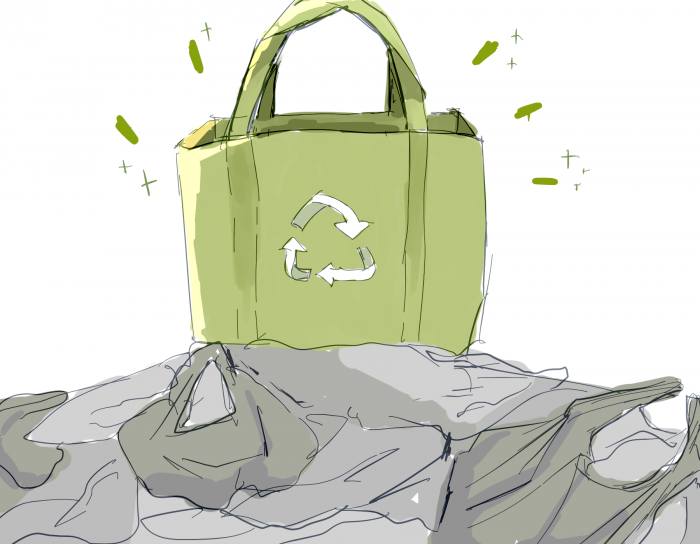Plastic is, undoubtedly, one of the greatest threats to our planet. With over eight million tons entering the ocean annually, the United Nations warns that, by 2050, the ocean could contain more plastic materials than fish. At the beginning of 2018, the city of Montreal banned plastic bags to reduce its plastic waste, leading consumers to wonder whether reusable bags offer any significant environmental benefits.
People reuse plastic bags made of high-density polyethylene (HDPE) more than might be expected. Whether they’re lining a trash can or being used to carry lunch to campus, the thin plastic bags serve a purpose. The ban therefore, may encourage consumers to purchase plastic garbage bags, offsetting some of the benefits of banning plastic bags in the first place.
Ideally, the ban might encourage more consumers to use reusable bags. However, even if they remember to bring to bring them, reusable bags aren’t completely cost-free either.
Cotton bags, a popular alternative to plastic, are available for only a few dollars each, but the cost of their production is immense. While they only make up a small percentage of the overall cotton production, according to the World Wildlife Fund the industry as a whole plays a significant role in land degradation, pesticide pollution, and water contamination. A study published by the United Kingdom Environmental Agency (EA) indicates that a cotton bag must be used 131 times to have a lower global warming potential than a HDPE bag.
Meanwhile, polypropylene (PP) bags are a friendlier alternative that need only be used 11 times to produce less greenhouse gas emissions than HDPE, according to the EA. These bags are durable and can easily be washed out between uses to reduce the risk of contamination.
However, studies indicate that shoppers are unlikely to be as committed as their bags. A 2014 report published by Clemson University shows that only 50 per cent of consumers who use PP bags use them enough times to be more environmentally-friendly than HDPE bags.
Ultimately, the onus lies on the consumer, who decides how committed they are to reusage. Kendra Pomerantz, the Zero-Waste coordinator at the McGill Office of Sustainability, hopes that, in addition to reducing plastic use, the ban will spark a greater change.
“The publicity generated by the ban is even more important than the direct effect of the ban itself in terms of advancing our societal conversation about single-use plastics and promoting major shifts in the way that we view disposable items,” Pomerantz wrote in a message to The McGill Tribune.
Pomerantz believes that the $0.15 charge on the new, thicker plastic bags will incentivize consumers to bring bags with them.
“In other cities, a small charge has been shown to be effective to reduce the use of plastic bags,” Pomerantz wrote. “It’s more about forcing shoppers to think about their bag use instead of it being simply a passive habit.”
To further reduce climate impacts, students should evaluate not only what kind of bag they’re using, but what they’re putting in them. By reducing weekly meat consumption, students can significantly lessen their carbon footprint.
Pomerantz also suggests looking into the resources offered at McGill.
“By joining a sustainability group or participating in a course, research project, or program, [students] can link up with other like-minded people and help contribute to larger initiatives,” Pomerantz wrote.
While the ban is a step in the right direction, a change in consumer behaviour is necessary before the City of Montreal sees any substantial improvements in its environmental impact.








